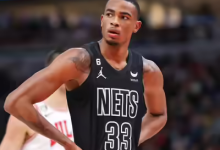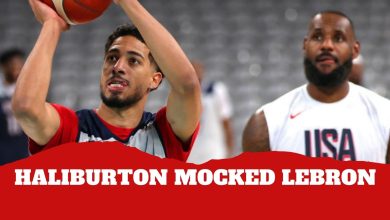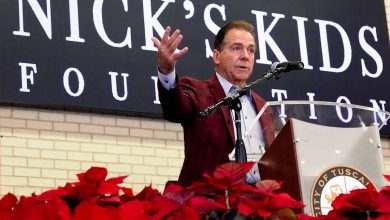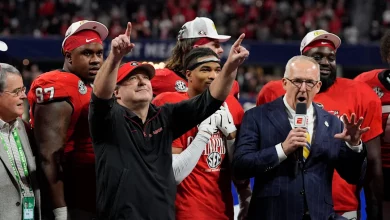Rumors suggest the LA Kings are interested in trading for Connor McDavid as questions about the Edmonton Oilers’ long-term future and stability continue to grow.
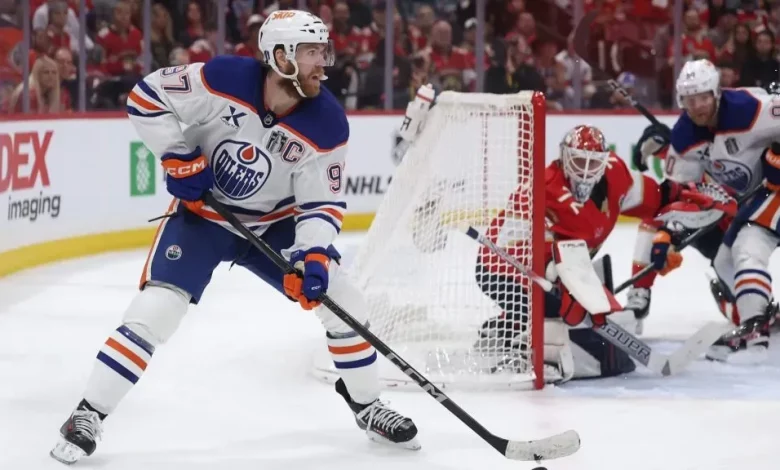
In the landscape of the NHL, trade rumors often generate significant buzz, especially when they involve players of Connor McDavid’s caliber. Recently, whispers have surfaced suggesting that the Los Angeles Kings are contemplating a trade for McDavid, a move that would shake the league’s balance and reshape the futures of both franchises. These rumors emerge amid increasing speculation about the Edmonton Oilers’ long-term stability, their ability to contend, and whether they can build a team around their generational talent. This comprehensive analysis delves into the origins of these rumors, the implications of such a trade, the current state of the Oilers, the strategic ambitions of the Kings, and the broader NHL environment influencing these dynamics.
1. Connor McDavid: The Player and His Significance
Connor McDavid, widely regarded as the most talented and impactful player in the NHL, has redefined what it means to be a superstar in hockey. Drafted first overall by the Edmonton Oilers in 2015, McDavid quickly established himself as a point-per-game player, winning multiple Hart Trophies as league MVP and leading the Oilers to playoff appearances. His combination of speed, skill, hockey IQ, and leadership makes him a once-in-a-generation talent.
McDavid’s presence on the Oilers has been both a blessing and a challenge. While he provides unmatched offensive dominance, the team’s struggles with roster depth, defensive consistency, and playoff success have often overshadowed his individual brilliance. His contract, signed in 2017 for eight years at an average annual value (AAV) of $12.5 million, underscores his importance to Edmonton’s future but also raises questions about long-term sustainability given the team’s challenges in building a championship contender.
The significance of McDavid extends beyond his on-ice performance; he is a franchise cornerstone, a face of the league, and a key asset that can dramatically influence a team’s competitiveness and marketability. This makes the notion of trading him both unprecedented and highly consequential.
2. The Rising Rumors: LA Kings’ Interest and the Context
The recent rumors suggesting the Los Angeles Kings are eyeing McDavid have garnered attention because they point to potential strategic shifts and underlying concerns within the Oilers’ organization. While NHL trade rumors are often speculative, their persistence indicates that there may be substantive discussions or at least a mutual acknowledgment of McDavid’s value.
The Kings, a team with a rich history and recent resurgence, have been building their roster through both draft success and savvy free-agent signings. Led by stars like Anze Kopitar and young talents like Quinton Byfield, they are positioning themselves as playoff contenders. Acquiring McDavid would elevate their status to immediate Stanley Cup favorites, transforming their offensive capabilities and leadership core.
The motivation behind the Kings’ interest could stem from several factors:
Desire to acquire a generational talent who can immediately elevate the team’s competitiveness.
Strategic shift towards a core of high-impact players to push for a championship window.
Leverage in negotiations with the Oilers if Edmonton’s management signals uncertainty or openness to offers.
The rumors may also be fueled by league-wide trends where teams seek to acquire marquee players to boost their postseason prospects and market appeal, especially as the NHL continues to globalize its audience.
3. The Edmonton Oilers’ Long-Term Uncertainty
The whispers about McDavid’s potential trade cannot be viewed in isolation from the Edmonton Oilers’ internal struggles and questions about their future. Several issues contribute to this uncertainty:
a) Playoff Performance and Cup Contention
Despite having McDavid at the peak of his powers, the Oilers have struggled to advance deep into the playoffs. Their inability to build a balanced, championship-caliber roster has often been criticized. The team’s reliance on McDavid and Leon Draisaitl for offense has become apparent, and the supporting cast has often fallen short in critical moments.
b) Roster Composition and Cap Challenges
The Oilers’ salary cap situation has been strained, with key contracts extended to core players, limiting flexibility to add depth. The team’s management has faced criticism for their inability to assemble a defensively responsible team around their stars, leading to inconsistent playoff results.
c) Management and Ownership Stability
Questions about the team’s leadership and vision have surfaced, with some fans and analysts questioning whether the current management structure can deliver sustained success. The recent playoff exits and roster construction issues have added to the perception of instability.
d) Potential Contract and Future Planning
McDavid’s contract, which runs until 2026-27, remains a significant financial commitment. The Oilers’ long-term planning appears uncertain, with rumors suggesting that the organization might consider a rebuild or partial retool if their window for contention is closing.
e) Market and Fanbase Expectations
Edmonton’s passionate fanbase and historical success evoke high expectations. Repeated playoff disappointments and the frustration of unfulfilled potential have created a sense of urgency, prompting speculation about whether the team will make drastic changes, including trading their star.
In this context, the rumors about McDavid being available are both a reflection of internal frustrations and external pressures to modernize or reset the franchise.
4. The Los Angeles Kings’ Strategic Interest
The Kings’ interest in McDavid appears to be driven by a desire to accelerate their championship pursuit. Several factors underpin their potential pursuit:
a) Immediate Impact and Controllability
McDavid’s ability to produce at an elite level immediately would make the Kings an instant powerhouse. His leadership, work ethic, and offensive prowess would complement their existing core and potentially set them apart from other contenders.
b) Market and Fan Engagement
Adding a player of McDavid’s stature would significantly boost the Kings’ profile, both locally and league-wide. It would energize the fanbase, increase merchandise sales, and elevate the team’s marketability.
c) Cap Space and Assets
The Kings have some cap space and prospects that could be attractive trade assets, including young players and draft picks. Their management might view this as an opportune moment to leverage their assets for a proven superstar.
d) Window for Success
With a competitive core and a roster built to contend, the Kings likely see McDavid as a piece that could push their window open immediately, possibly aligning with their long-term plans to challenge for a Stanley Cup.
e) Leverage in Negotiations
Even if the Kings are not fully committed to a trade, the rumors could serve as leverage in negotiations with Edmonton or as a strategic move to gauge the Oilers’ willingness to move McDavid.
5. The Edmonton Oilers’ Response and Strategic Dilemmas
If the rumors are rooted in genuine interest from the Kings or other teams, the Oilers face complex decisions:
Reinforce the team around McDavid or consider a rebuild? The organization must weigh whether their current roster has the ingredients for success or if trading McDavid could accelerate a rebuild.
Valuation of McDavid: Given his status, only a substantial package of prospects, draft picks, and young NHL players could entice Edmonton to trade him. This raises questions about whether such a package exists or is worth it.
Long-term vision: The team’s ownership and management need clarity on their future direction—contend now or build for the future—and how McDavid fits into that vision.
Fans and marketability: Trading McDavid would be a seismic move, likely disappointing fans but potentially setting the stage for a rebuild that could yield future success.
6. Broader NHL Trade Market Dynamics
The potential interest in McDavid must also be viewed in the context of the NHL trade landscape:
Market for star players: Historically, superstar trades are rare but have a profound impact. Teams often weigh the risk of trading their franchise player against the potential benefits of a rebuild.
Value of draft picks and prospects: A trade for McDavid would require a significant return, possibly including multiple top prospects and high draft picks, which could alter the receiving team’s development timeline.
Precedents: Past blockbuster trades, such as the trade of Eric Lindros or the Patrick Roy deal, highlight how rare and impactful such moves are.
Financial considerations: McDavid’s contract and the salary cap implications add complexity to any trade negotiations.
7. Potential Impact on Both Teams and the League
A trade involving McDavid would send shockwaves through the league:
For the Oilers: Losing their superstar could lead to a rebuild or retooling, with a focus on acquiring assets to build around new core pieces.
For the Kings: Gaining McDavid would instantly elevate their championship prospects, making them a top contender and increasing their chances of a deep playoff run.
League-wide: Such a move would reshape power dynamics, possibly prompting other teams to reevaluate their What Does This Mean for the Future?
While the rumors of the LA Kings’ interest in Connor McDavid remain speculative, they underscore the intense strategic considerations facing NHL teams with star players. The Edmonton Oilers’ internal struggles with success and stability have fueled speculation about whether they might consider trading their franchise player, especially if uncertainty persists about their long-term competitiveness. For the Kings, pursuing McDavid could be a bold step toward immediate dominance, aligning with their franchise’s ambitions.
Ultimately, whether these rumors materialize into a trade depends on numerous factors: the Oilers’ assessment of their future, the Kings’ willingness to part with valuable assets, league-wide market conditions, and the players’ own preferences. If such a trade were to happen, it would mark one of the most significant franchise-changing moves in recent NHL history. Until then, these rumors serve as a compelling narrative highlighting the fragile balance between star power, team stability, and strategic vision in professional hockey.

